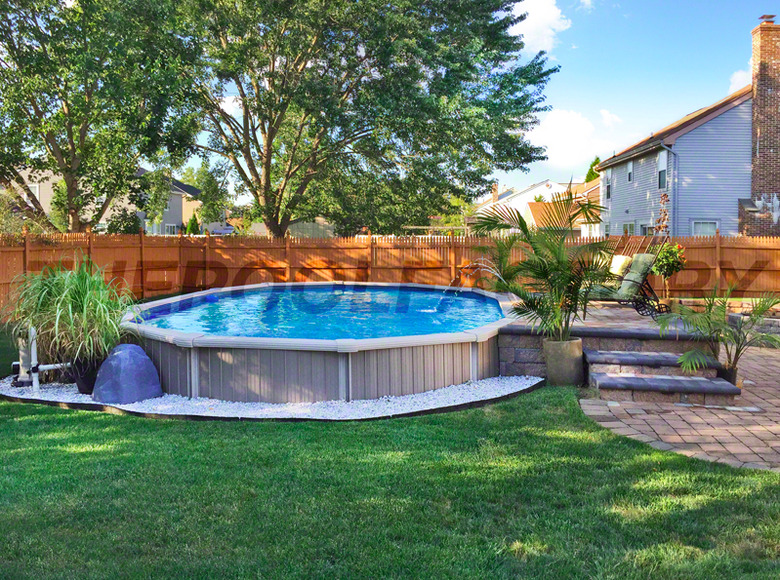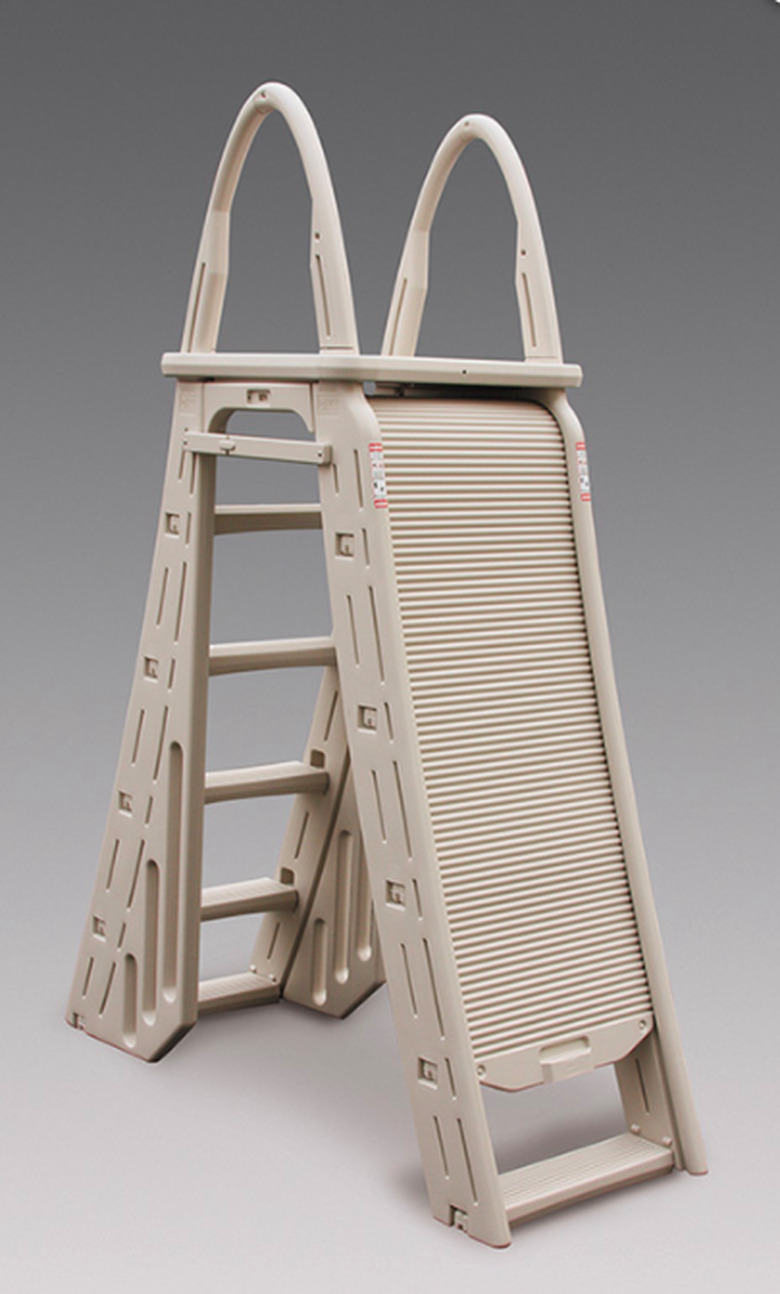Above Ground Swimming Pool Laws & Regulations In Georgia
Swimming pools are popular in Georgia because of the long, hot summers. And above-ground pools are especially popular due to several advantages. First, above-ground models are considerably more affordable than in-ground pools. Even a modest in-ground pool can cost at least $15,000 to $25,000 to install, while an above-ground pool can cost as little as $1,500 or $2,000 and can be installed in a fraction of the time. Above-ground pools can also be perfect for small yards, since there are models starting as small as 12 feet in diameter.
Above-ground pools are semi-permanent, which means they can be moved should you ever want to sell your house or change their location within the yard. Finally, above-ground pools offer easier maintenance than in-ground pools, because the parts are all visible and accessible, and draining the pool for extensive cleaning is an easy matter. In southern locations like Georgia, above-ground pools also offer the advantage of being less susceptible to invasion by the snakes and other wildlife that are prevalent.
But as with any swimming pool, there are local regulations and ordinances regarding the installation and use of above-ground swimming pools. Most of these regulations are similar to those required for in-ground swimming pools. Here are some of the things to know about above-ground swimming pools in Georgia.
Permits and Codes
Permits and Codes
Although this is dependant on the locality, in most Georgia communities and counties, a permit is required in order to install an above-ground swimming pool. Usually, a city or county inspector must visit once during construction and then again upon completion to review and "pass" the work. The permit fees are usually less than for an in-ground pool—often as low as $75 vs the $250 or more required for an in-ground pool. The permit and required inspections help ensure safe installation, so don't forego the permit application.
Several standard building code requirements are usually enforced for above-ground swimming pool installations, most commonly:
- Swimming pools and their attendant equipment must be at least 10 feet from any property line.
- Urban and suburban localities typically prohibit swimming pools in the front yard.
- Visible swimming pools are usually forbidden in suburban side yards, except on corner lots.
- Above-ground pools may not be installed over septic tanks or buried utility cables.
Even if you live in a rural area where there are no specific requirements for pool installation, it is a good safety practice to follow these and the following guidelines. Most of these guidelines exist to improve the safety of pools.
Fencing
Fencing
All pools, above-ground and in-ground, should be protected by fences that guard against unwanted and unsupervised guests from gaining access to your pool. The goal of these restrictions is purely a matter of safety to prevent tragedy. At one time, Georgia law required fencing around pools throughout the state, but beginning in 2009, local governments were given responsibility for this determination.
In most localities, all pools more than two feet deep, whether above-ground or in-ground, must be within a lockable fence that is at least four feet high. (In some communities, the height requirement may be 54 inches or higher.) Split-rail fences do not qualify as acceptable fencing. There may also be other requirements, such as equipping the home doors with alarms if they lead directly onto a raised deck surrounding the above-ground pool.
If your yard has a boundary fence that meets the qualifications, no additional fence is needed around the pool, but if the yard fence is not lockable or varies from other pool-fence requirements, then a separate fence must be installed to prohibit entry into the pool by unattended children or unauthorized persons.
Tip
Note: Some localities may waive the fencing requirement for above-ground pools if no means of entry to the pool (such as a ladder) is readily available. In some communities, an above-ground pool equipped with a ladder that has a lockable guard may be acceptable in lieu of a fence. Check with your local building inspections office. Even if you have a fence, such a ladder offers a meaningful double safeguard.
Different communities may have different stipulations on fencing, but by following these state requirements for public swimming pools, you can be assured of safety:
- Any openings in the fence should be no more than 4 inches wide.
- Gaps at the bottom of the fence and the ground should be no more than 4 inches.
- If the fence has horizontal rails, they must be no closer than 45 inches apart or be located on the pool side of the fence. This prevents the rails from being used as ladder rungs to climb the fence.
- Gates should be self-closing and self-latching, with the latch being at least 54 inches above the ground if located on the outside of the fence, or set down at least 3 inches from the top of the fence if mounted on the pool-side of the fence. This requirement is to prevent small children from operating the latch without supervision.
- Chain-link fences should have no openings more than 1.75 inches in size. This prevents the wire fence from providing footholds for people climbing over.
Tip
It's important to remember that your fence must be installed and inspected before you fill the pool with water.
Equipment Requirements
Equipment Requirements
Georgia pool owners must keep all electrical equipment in good repair. Owners may not modify heaters or pumps to increase power because of the risk of overload and fire. Some localities prohibit the use of heaters in above-ground pools. Any tinkering with the mechanicals on your pool not only may violate local law, but may also void the manufacturer's warranty on the pool.
While no broad law requires the use of ladders in above-ground pools, some localities may require them if minor children will use the pool. A pool without a fixed ladder may be considered child endangerment in some communities, due to the fear that children inside the pool will be unable to climb out.
Homeowner's Insurance
Homeowner's Insurance
Always check to make sure your homeowner's insurance policy protects you should an unfortunate accident occur. Having proper coverage may even be an installation requirement in your community. It is not safe to assume you are covered by a standard homeowner's insurance policy—read the fine print or call your insurance agent to check. You may need to purchase an additional rider on your policy to extend homeowner's liability coverage to your swimming pool.
Also, remember that your homeowner's insurance may void your coverage if you have failed to comply with local codes regarding the installation of your above-ground swimming pool.

